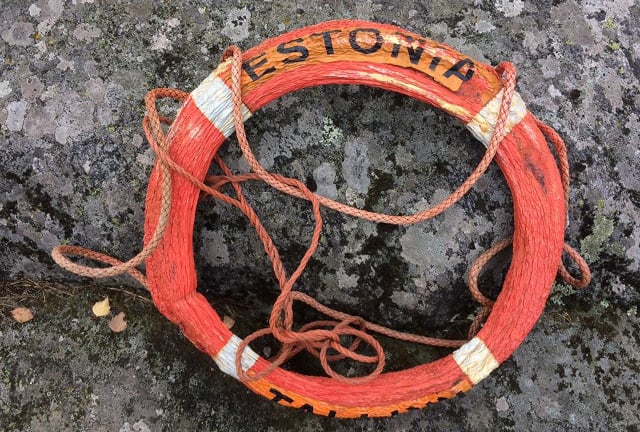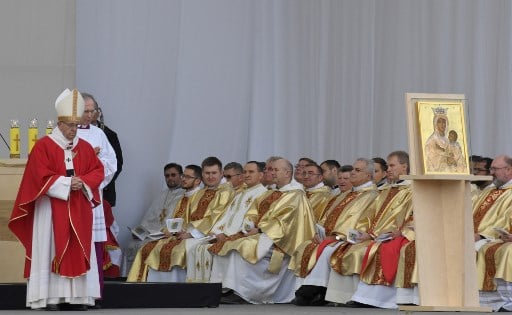The MS Estonia sank on September 28th 1994 on a crossing from Tallinn to Stockholm, carrying 989 people on board: 803 passengers and 186 crew. The vast majority died in the disaster, 501 of whom were Swedish.
What appears to be a sad reminder of the tragedy washed ashore on an island last weekend, when a team from Finland's forestry administration Metsähallitus/Forststyrelsen were out eradicating invasive rose bushes in the Finnish archipelago. They found the life buoy, believed to be from the shipwreck, south of Jussarö.
“It is likely that this styrofoam buoy has been crushed by the high pressure at 80m depth, where the wreck lies, and then returned to the surface 23 years later. An eerie reminder from the past,” wrote the Tvärminne Zoological Station, which published a picture of the life buoy on Facebook.
The buoy was found more than 100 kilometres from where the MS Estonia sank in one of the Baltics' worst peacetime disasters.

The bow doors salvaged from the sea in November 1994. Photo: Anders Wiklund/TT
An international probe in 1997 blamed faulty bow doors which gave way in a storm, but there have also been numerous claims from relatives, shipping experts and politicians that the ferry sank after an explosion caused by military equipment being transported on board.
The majority of the victims were Swedish and pressure was heaped on the Swedish government to raise the MS Estonia to recover the bodies and try to establish exactly what happened. However, those hopes were destroyed when the decision was taken to leave the vessel where it was and let the victims be buried at sea.
To ensure the site would not be tampered with the ship was covered in thousands of tonnes of gravel and a protection order was taken out. Many of the families affected by the tragedy still hold out hope there will be a fresh inquiry and that the ship will be raised, while others believe it should be preserved as a mass grave.



 Please whitelist us to continue reading.
Please whitelist us to continue reading.